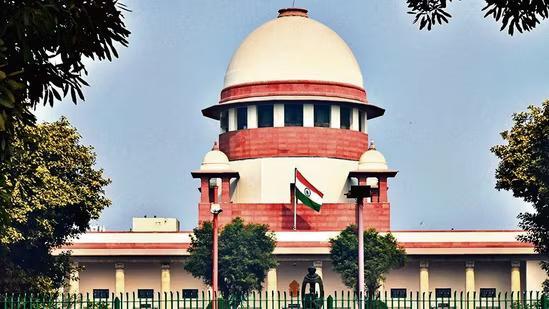
No Action Against Owners of 10 & 15-yr-old Diesel & Petrol Vehicles for 4 Weeks: SC
In a significant move, the Supreme Court of India has passed an order that no “coercive” action will be taken against the owners of over 10-year-old diesel and 15-year-old petrol vehicles in Delhi for a period of four weeks. The decision was taken in response to an application filed by the Delhi government, which challenged the ban on these vehicles as a pollution control measure in the capital.
The Delhi government had approached the Supreme Court seeking a stay on the ban on old vehicles in the national capital, which came into effect from May 13, 2021. The government argued that the ban would cause financial hardship to the owners of these vehicles and also affect the livelihood of many people who rely on these vehicles for their daily commute.
The Supreme Court, while passing the order, made it clear that the ban on old vehicles was a “coercive” measure and that the government failed to provide any alternative arrangements for the owners of these vehicles. The court also observed that the Delhi government did not provide any financial assistance or compensation to the owners of these vehicles, which would have been affected by the ban.
The court’s decision is a major relief for the owners of old vehicles in Delhi, who were facing the possibility of their vehicles being taken off the road. The ban on old vehicles was announced by the Delhi government as a measure to reduce air pollution in the city, which has been a major concern for the government and the residents of Delhi for several years.
However, the ban has been met with protests and resistance from the owners of old vehicles, who argue that the government did not provide any alternative arrangements for them. Many owners of old vehicles had also approached the court seeking a stay on the ban, which was granted by the court in this case.
The Supreme Court’s order is a significant development in the ongoing debate over the ban on old vehicles in Delhi. The court’s decision is expected to have a major impact on the lives of millions of people who rely on old vehicles for their daily commute.
The Delhi government had announced the ban on old vehicles in April 2021, saying that it was a necessary measure to reduce air pollution in the city. The government had also announced that it would provide alternative arrangements for the owners of old vehicles, including the option of purchasing new vehicles or using public transport.
However, the owners of old vehicles were not convinced by the government’s argument and had approached the court seeking a stay on the ban. The court had initially refused to stay the ban, but the Delhi government had later approached the court seeking a review of the order.
The Supreme Court’s order is a significant setback for the Delhi government, which had been pushing for the ban on old vehicles as a measure to reduce air pollution in the city. The government had argued that the ban would help to reduce the number of polluting vehicles on the road and improve the air quality in the city.
However, the owners of old vehicles had argued that the ban was unfair and that the government did not provide any alternative arrangements for them. Many owners of old vehicles had also argued that the ban would cause financial hardship to them and affect their livelihood.
The Supreme Court’s decision is expected to have a major impact on the lives of millions of people who rely on old vehicles for their daily commute. The court’s decision is also expected to have a major impact on the environment, as the ban on old vehicles was announced as a measure to reduce air pollution in the city.
In conclusion, the Supreme Court’s decision to not take any “coercive” action against the owners of over 10-year-old diesel and 15-year-old petrol vehicles in Delhi for a period of four weeks is a significant development in the ongoing debate over the ban on old vehicles in the city. The decision is expected to have a major impact on the lives of millions of people who rely on old vehicles for their daily commute and is also expected to have a major impact on the environment.






